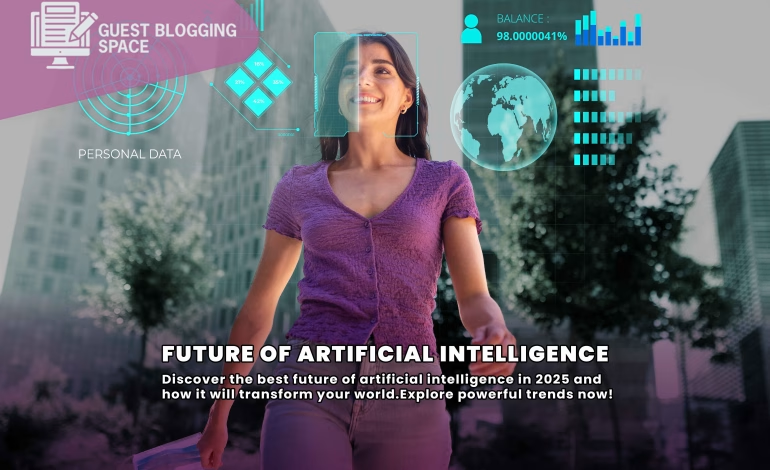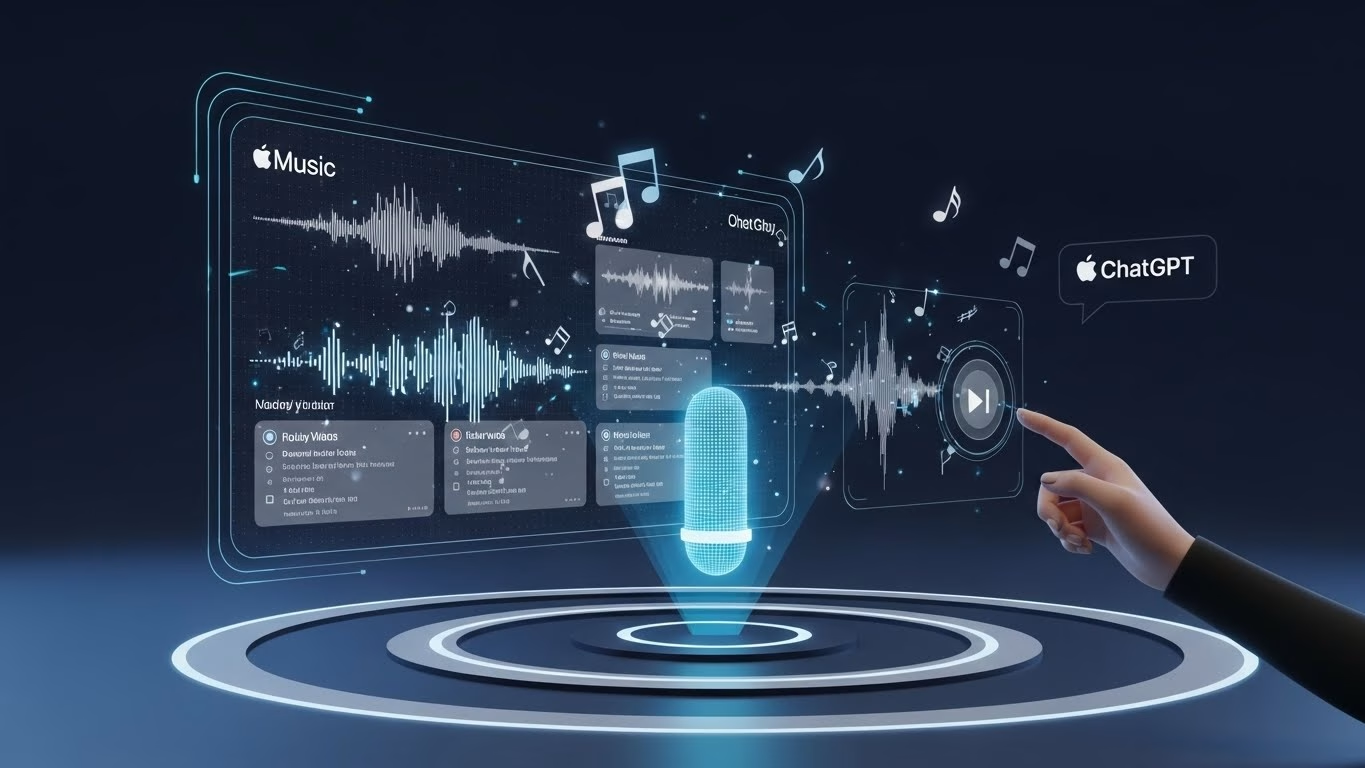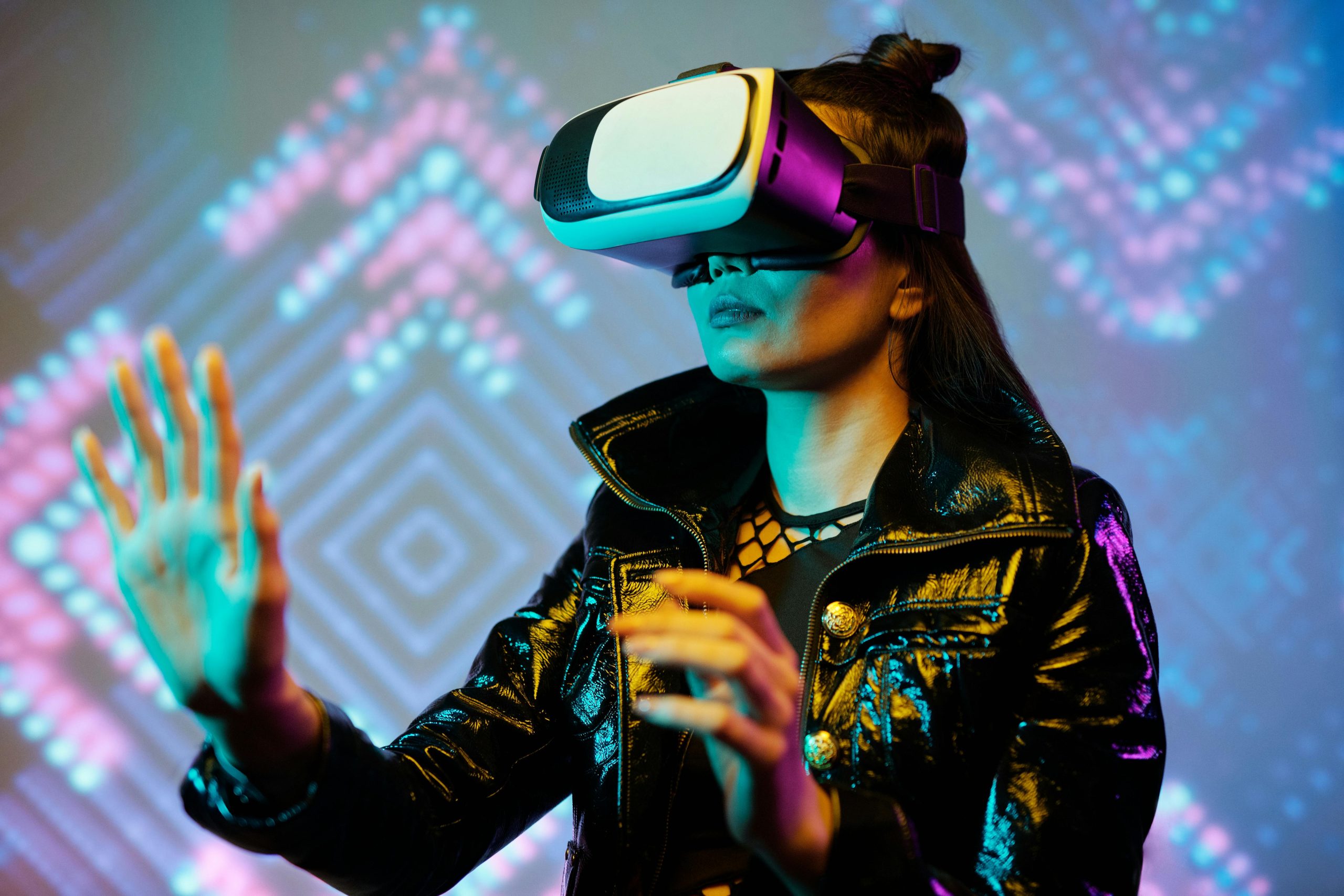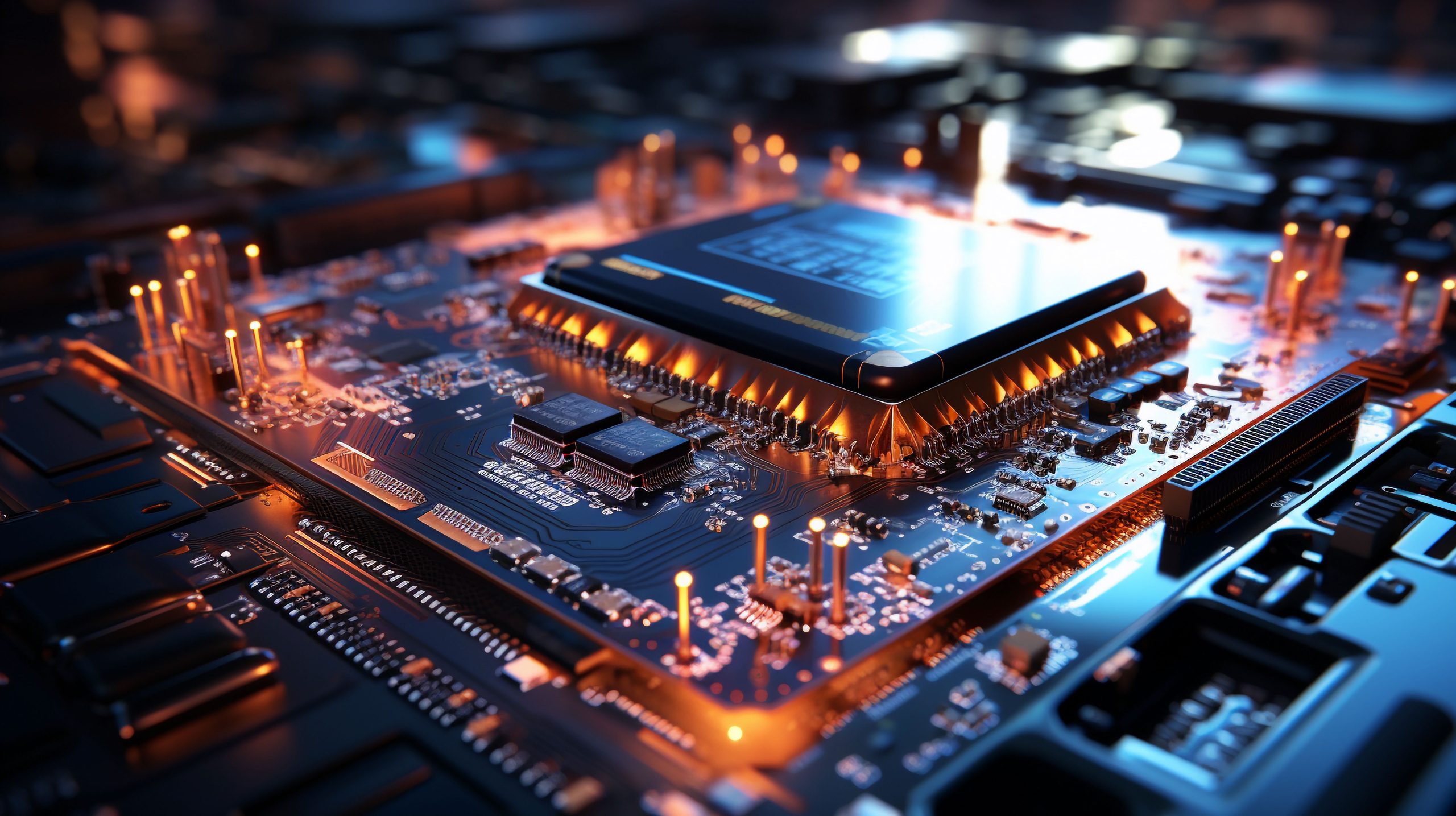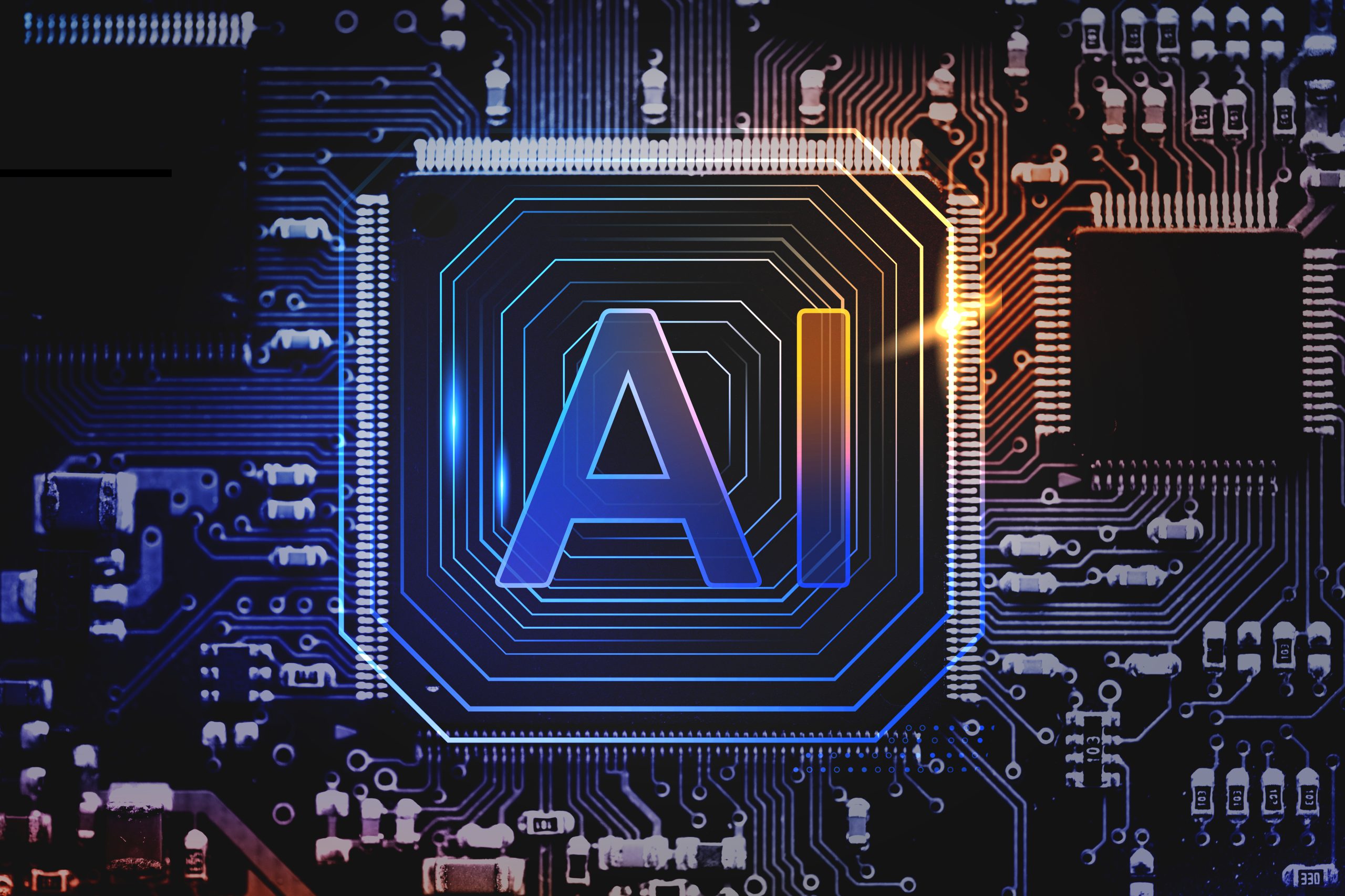The Powerful Future of Quantum Computing in 2025
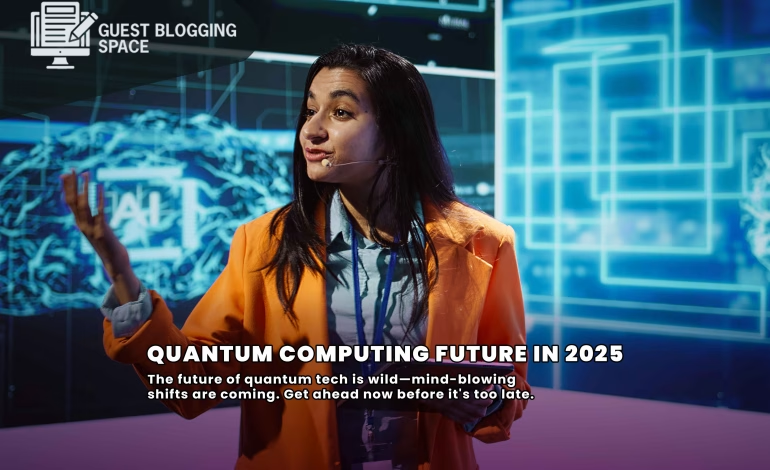
Quantum computing future is a future-advanced computing technology that uses quantum mechanics of superposition, entanglement, and quantum interference to make computations on data. Quantum computers, in contrast to classical computers, operate on quantum bits or qubits. Such qubits will be able to have many states at once, meaning that quantum computers will solve some complex problems exponentially faster when compared to their classical equivalents. Massive parallelism and high-dimensional calculations offer quantum computing a particularly beneficial power when using unique features of qubits.
There has been a true transformation in the shift from classical to quantum computing in the way we conceptualize information processing. Where a classical computer is designed on deterministic logic, a quantum system is probabilistic and can be subject to nonintuitive and strange laws of quantum physics. The paradigm change is not all about speed being faster, but in redefining the architecture, the algorithms, and even the category of the problem that may be solved. Applications like cryptography, material science, and optimization are set to be transformed; as such, quantum computing future algorithms may perform much better than their classical counterparts by orders of magnitude.
Why the Future of Quantum Computing Matters
The remainder of quantum computing has significant implications in the fields of influence in the sciences, technology, and society. The quantum computing future will see quantum hardware drive drug discovery, modelling of financial systems, climate modelling, and secure communication when it develops further. Additionally, quantum computing is tampering with our current cybersecurity infrastructure, and we must reconsider everything about encryption and data security.
Quantum is an area where great interest is being shown by governments, high-tech companies, and universities since its budgets allow them to transform and modernize their operations. Essentially, the quantum computing future does not represent a variation in ongoing technology, but instead it marks the beginning of a new period of computing that will change entire industries and alter what will be a computationally feasible future.
Foundations of Quantum Computing
Quantum computing is a relatively new era in computer science, physics, and even mathematics due to the fact that it is striving to change the way we undertake complicated computational issues. In contrast with classical computers, where information is processed using two states (0s and 1s), the quantum computing future uses entirely different principles that enable them to operate on years of information at a time.
What is a Quantum Bit (Qubit)?
Quantum computing is a relatively new era in computer science, physics, and even mathematics due to the fact that it is striving to change the way we undertake complicated computational issues. Unlike classical computing, quantum computing revolves around the quantum bit, or qubit—a quantum counterpart to the classical bit, distinguished by its unique correlations. Although classical bits may only exist in two states (0 or 1), qubits are based on the quantum mechanics phenomenon to coalesce into multiple states simultaneously. The most common concrete realizations of qubits are trapped ions, superconducting circuits, or photons, all with their advantages in coherence, scalability, and error rates within the quantum computing future.classical computers, where information is processed using two states (0s and 1s), the quantum computing future uses entirely different principles that enable them to operate on years of information at a time.
Superposition and Entanglement: Core Principles
Quantum computing is powerful due to the presence of two fundamental phenomena known as superposition and entanglement. The superposition allows a qubit to maintain many states simultaneously; when several qubits are entangled, the processing power grows exponentially. Entanglement, however, refers to quantum correlations of particles where the state of one is directly correlated to the state of another, which is instantaneous as distance is not relevant. It is through this interrelation that quantum computing future algorithms run significantly faster than their classical analogs, doing such things as breaking large numbers or running simulations of molecular behaviour.
Quantum Computers (Gate-based, Annealers, and Topological)
Quantum computers are available in a variety of architectures, depending on the kind of problems. Gate-based quantum computers behave much like classical logic gates, except they operate on qubits using quantum gates. They are very general and able to execute sophisticated quantum algorithms such as the Shor or Grover algorithms. Quantum Annealers The most famous line of quantum annealers is intended to solve optimization problems: using quantum fluctuations, they explore low-energy configurations of large and complex systems, say in a D-Wave system. Topological quantum computers, although still quite theoretical, would harness anyons and braided quantum states in a bid to obtain error-resistant computing, and possibly more stable manipulation of qubits with less decoherence in the quantum computing future.
Recent Condition of Quantum Technology
Quantum technology is quickly moving out of the theoretical models into real-time applications, with more money being invested in the field all over the world and extending interdisciplinary study into it. Essentially, quantum computing is based on the laws of quantum mechanics, including superposition, entanglement, and quantum tunneling, to efficiently execute computationally intensive tasks that could not possibly be solved by a classical computer. In 2025, the quantum computing future industry is still in a pre-commercial, yet highly experimental stage, characterized not only by great breakthroughs but also by limited technological barriers.
Key Landmarks in Quantum Research
Over the last 20 years, quantum research has experienced some of the most important breakthroughs. The most early was the realization of quantum entanglement in controlled systems, after which the Shor algorithm and Grover algorithm were established, realizing the theoretical advantage of quantum computing. A quantum event in recent years, when Google declared quantum superiority, in which their 53-qubit processor, Sycamore, completed a calculation that would take a classical supercomputer thousands of years in the same amount of time (200 seconds), proved to be a turning point. On par, IBM, Rigetti, and IonQ have accomplished some important landmarks in the fields of quantum volume, coherence time, and gate fidelity, further driving the technology to reach scalability and error correction in the quantum computing future.
Top Companies in Quantum Invention and Labs
An environment of a combination of tech giants, start-ups, and universities now supports the quantum computing future ecosystem. The leaders are companies like IBM, Google, and Microsoft, which offer cloud-free quantum platforms and have well-developed research programs. Particular attention should be paid to the IBM Quantum System One and the plans of this company to develop 1,000+ qubit processors. There are also startups, such as IonQ, Rigetti, and PsiQuantum, which are innovating using different hardware, e.g., trapped ions, superconducting qubits, and photonics. Universities such as MIT, Caltech, and the University of Oxford continue to make their contributions towards the state-of-the-art research and often in collaboration with national laboratories and international consortia.
Current Breakthroughs and Hardware Challenges
However, quantum devices remain a problematic field, even though it has developed very fast, especially, the challenge of error rates, qubit coherence time, and scaling. Another formal problem that is still of concern is quantum decoherence, because quantum states are fragile and can be easily destabilised by environmental noise. Recent innovations have, however, given us hope. Some methods to overcome these challenges, such as quantum error correction (QEC), cryogenic chip architecture, or topological qubit (as Microsoft does), are already promising.
In general, quantum technology has been developing in a state of flux with experiments and innovations. As companies, research, and investment all increase by huge leaps, quantum technology will be in the final stages of maturity in the next decade.
Quantum Computing vs Classical Computing
Speed and Complexity Comparison
The amount of computing is absolutely different in information processing and classical computing. The difference between classical and quantum computers is that whereas classical computers use bits (0s and 1s), quantum computing amount computers have qubits, which live in superposition, or in other words, live contemporaneously in multiple states. That enables amount systems to achieve exponentially briskly results than classical computers on solving some kinds of problems, such as factoring large numbers, bluffing amount systems, and optimizing over complex variables.
Indicatively, the Shor algorithm illustrates how a quantum computing amount computer would be suitable to crack the process of factoring large integers in a polynomial time, which is virtually insolvable using a classical processor. With the development of amount tackle, the future of Quantum Computing holds the prospect of being faster than classical computing in several scenarios when classical computing becomes inadequate.
Divergence in Use Cases and Complementary Relations
Classical computing is veritably successful at general-purpose calculation, and includes word processing, browsing through the web, and general data analysis. Again, quantum computing will transform targeted areas such as cryptography, medicine, machine learning, and material wisdom. Another point to be mentioned is the fact that the appearance of amount computers won’t exclude the classical systems; at best, they will condense them. In the mongrel computing scripts, many specialized processors break a many particular problems, whereas classical systems control the sense and stone interfaces. Similar complementarity is the value behind two similar paradigms to the future of computing.
Scalability and Error Correction Challenges
Scalability and error correction may be seen as one of the crucial obstacles on the way to the full consummation of quantum computing amount computers. The number of bits is extremely sensitive to noise, decoherence, and the outside world. still, the process of amount error correction is veritably resource-intensive due to the demand of entangled countries and redundancy, unlike in the classical systems in which error correction is fairly easy.
Those in the field have attained significant progress in error correction and coherence times of qubits and in fault-tolerant amount computation, yet the construction of a practical, dependable quantum computing amount computer is a vibrant field of exploration. These walls are crucial to defeating and achieving the ultimate Quantum Computing Future and making it really near to coming mainstream.
Key Technologies Powering the Future
When considering the future of Quantum Computing, it is worthwhile to consider the following few technologies that form its path, covering the underlying hardware degree of freedom issues, the algorithm-related issues on the developmental front, and the problem of deployment into the physical world. Knowledge of these technologies gives a clear image of the current evolution of quantum computing, which went hand-in-hand hypothetically to a truly meaningful contribution to the quantum computing future.
Superconducting, Trapped Ions, Photonic Quantum Hardware Platforms
The central point of quantum computation is the Hardware. The main competitors currently would be superconducting qubits, trapped ions systems and photonic qubits. Such platforms as that of IBM and Google utilize Josephson junctions cooled to near absolute zero allowing gate operations at high speed and an increasing number of qubits. Both IonQ and Honeywell employ trapped ion technology, which offers extremely stabling qubits by confining ions on electromagnetic fields, which is best suited to fine-grained and fault-resistant computation. In the meantime, photonic quantum computing, such as what is being developed in companies such as Xanadu, uses light particles to do calculations at around room temperature, which provides special integration and scaling merits.
Quantum Algorithms and Quantum Software
The quantum software and algorithms open the window to actual computational power, even as the hardware is its foundation. Examples of new quantum algorithms include Shor algorithm to factor and Grover algorithm to search which show an exponential gain over classical analogues. Most recently, near-term quantum devices (NISQ era) are being optimized to hybrid quantum-classical algorithms, such as the Variational Quantum Eigensolver (VQE) and Quantum Approximate Optimization Algorithm (QAOA). Quantum programmers are also developing quantum programming languages such as Qiskit, Cirq, and PennyLane that will make accessibility and innovation easier. It is important that such tools exist by which problems in cryptography, materials science and machine learning can be translated into quantum-executable problems, advancing the quantum computing future.
Quantum Cloud Computing Systems
Quantum cloud computing platforms are becoming central to democratize the access and close the gap between the hardware and the end-user. IBM Quantum, Amazon Braket, Microsoft Azure Quantum and Google Quantum AI are cloud-based quantum computing platforms providers that provide researchers and companies with an opportunity to access real quantum processors or high-fidelity simulators as an experiment. Such platforms advocate cooperation, reduce the threshold, and propel faster innovation when connected with classical cloud and AI technologies. With a growing advancement in quantum hardware, cloud platforms will play a decisive role in expanding quantum capabilities across the globe.
Applications in Industry
As quantum computing progresses from theoretical exploration to tangible implementation, its transformative potential is becoming increasingly evident across various industries. The quantum computing future is poised to redefine how organizations solve complex problems by offering computational power far beyond the limits of classical systems. Below are key sectors where quantum computing is making a significant impact.
Quantum Computing in Pharmaceuticals and Drug Discovery
Quantum computing holds great potential to transform pharmaceutical research in groundbreaking ways. Conventional drug discovery typically relies on a time-consuming trial-and-error approach that can span more than ten years. Quantum computers, with their ability to simulate molecular interactions at the quantum computing level, can model complex biochemical reactions with unprecedented accuracy. This enables faster identification of potential drug candidates, optimization of compound structures, and reduced R&D costs. Industry leaders like Roche and Pfizer are already investing in quantum-based platforms to accelerate therapeutic innovation, signifying a pivotal shift in medicine development.
Risk Analysis Financial Modeling
Quantum computing can provide a strong portfolio optimisation and market simulation tool, and analyse risks in finance. Classical algorithms do not cope with the volatility and complexity of financial markets, particularly with big data and a high number of variables. Quantum algorithms, a notable one being the Quantum Approximate Optimization Algorithm (QAOA), can be applicable in the improvement of decision-making because they can analyze complicated financial situations in real-time. Quantum computing in this area promises to enable arbitrage detection to occur faster, enable fraudsters to be analyzed more efficiently, and forecast more accurately, all of which will allow early adopter financial institutions to gain a competitive advantage through quantum computing.
Material Science and Chemistry
The quantum computers are more specifically and uniquely adequate in the modeling of the behavior of atoms and sub-atomic ones; hence they would be most suitable in breakthroughs in material science and chemistry. The future usage is the discovery of new material with desired qualities namely super conductors, low – cost high capacity batteries, alloy materials with desired mechanical properties, which can revolutionize the approach into aerospace, energy sectors, and manufacture among others. Quantum error-correction Scientists may avoid costly physical prototyping by simulating quantum states of matter to accelerate innovation cycles and the introduction of sustainable material solutions through quantum computing.
Artificial Intelligence and Machine Learning Acceleration
Quantum computing has many connections with advancements in AI and machine learning in the future. Quantum-enhanced algorithms would be able to handle very high dimensions of data more efficiently possibly solving optimization, pattern recognition and data clustering issues much faster than classical computers. This becomes a new possibility with respect to real-time language translation, personalized medicine, autonomous vehicles, and smart manufacturing. The new era of intelligent computing approaches with AI systems that will learn and adapt better due to the emergence of hybrid quantum-classical quantum computing models.
Cybersecurity and Cryptography
Both threats and opportunities of cybersecurity are exhibited by quantum computing as well. It is a danger to existing classical cryptography systems like RSA and ECC, but at the same time, it promotes the study of so-called post-quantum cryptography (cryptographic systems that are secure against quantum attack). The future applications of quantum technologies can be associated with or embedded in highly secure means of communication, such as the quantum key distribution or Quantum Key Distribution (QKD), leveraging the principles of quantum mechanics to ensure data integrity and confidentiality. This paradigm shift of the digital security infrastructure is already being prepared by governments and technology giants.
Quantum in Government and Defense
National Quantum Initiatives Around the World
Quantum computing is currently a focus area of government investment in the world because governments believe that investing in quantum computing is the key to technological leadership and national security. The United States, China, the United Kingdom, Germany, and India are some of the nations that have introduced national quantum strategies investing billions of dollars on research, talent and infrastructure. The Quantum Computing Future has left the academic and corporate labs, and entered into the national policy blueprints.
To take an example, the U.S National Quantum Initiative Act and the European Union quantum flagship are designed with the intention of promoting the partnership between the government and the industry and faster innovation in quantum science. By engaging in such orchestrated moves, not only does this guarantee technological independence although it also has a view of avoiding asymmetry advantages by their adversaries in the quantum computing future.
Economic Impact and Market Forecasts
Investment Trends and VC Interest
Venture capitalists (VCs) and large companies are putting a great deal of money into the future of quantum computing, which is an indicator of a great deal of confidence in its potential. Since around 2012, VC interest was booming as startups and research institutions are showing a potentially great progress in quantum hardware, software, and applications.
This capital inflow is expediting innovation not only but also the competitive forces between tech giants and governments across the world. Quantum computing attracts the attention of investors, specifically to the possibility of building an industry (pharmaceuticals, logistics, finance, cybersecurity) in which classical computing will have fundamental limitations. Consequently, funding rounds are increasingly becoming bigger and more constant, testifying to the strategic importance of early adoption of quantum computing technology.
Market Outlook of the Global Quantum Computing (2025The 40)
Market expectations of quantum computing indicate an exponentially increasing level of development over the period of 2025-2040, as quantum computing graduates to become a normal commercial application. According to analysts, the current market size that is measured in billions of dollars in quantum computing will grow to an approximate multi-hundred-billion-dollar industry by 2040. The increase has been led by advances in qubit stability, error correction and scalable designs that give practical quantum advantage to complex equation solving in the quantum computing future.
Besides this, quantum-as-a-service applications and hybrid quantum-classical computing systems are predicted to stimulate industry-wide professionalization. Areas that have invested a lot in quantum research like North America, Europe and Asia-Pacific are likely to lead in the market as governmental efforts, strategic alliances, and intellectual property creation exist to support it. On the whole, the perspectives of the quantum computing market resemble a life-altering economic trend with numerous shockwaves across the global value chains in the quantum computing future.
Job Creation and Workforce Transformation
As quantum computing comes into its own, it will transform the labor market, opening up new jobs and requiring expertise that mixes quantum physics, computer science and subject-matter knowledge. To develop quantum solutions, organizations will need developers of quantum algorithms, quantum hardware engineers, quantum cybersecurity specialists and data scientists familiar with quantum concepts. Such demand will create the atmosphere of active workforce transformation, and education institutions will have to update their curriculums, and governments will have to make upskilling investments to meet the needs of the quantum computing future.
In addition, the penetration of quantum computing into the current industries will complement the traditional industries through the automation of all the complicated tasks and offering superiority in decision-making, thus contributing to productivity growth. Though there are certain professions that will turn extinct, the general impact will be a net gain of high-value job options to the economy and the global systems of innovation driven by quantum computing.
Educational and Research Ecosystem
University Programs and Curricula
Quantum computers are rapidly being developed in universities all over the globe today, and curricula are being redesigned in order to educate the new generations of quantum scientists and engineers. It is possible to pursue a specialized undergraduate or graduate degree in quantum information science as well as quantum engineering and related fields in leading institutions such as MIT, Stanford, and the University of Cambridge.
Curricula would combine the fundamental knowledge of quantum mechanics with training in quantum algorithms, hardware and software development. Such an integrative approach provides a set of guarantees that the students will not only learn the theoretical background but also will have some practical experience with quantum programming frameworks such as Qiskit and Cirq. These programs by integrating course work involving physics, computer science, and electrical engineering prepares the student with the wide range of skills required to innovate in the Quantum Computing Future.
Important Research Designations and Concerts
Avant-garde research centers and international alliances are taking center stage in promoting quantum computers as a theory to reality. IBM Quantum, Google Quantum AI, and the Quantum Flagship initiative inside the European Union are some of the corporate organizations that create collaborative spaces and connect academia, industry, and governmental agencies. Such consortiums aim at addressing key problems in quantum error mitigation, scalable qubit design and quantum algorithms to put the goal of a fault-tolerant quantum computer in reach.
Moreover, national quantum programs, such as the U.S. Through the National Quantum Initiative Act, significant investments are being made to establish research centers, promote cross-disciplinary collaboration, and support quantum startups within the growing quantum ecosystem. The combination of these research centers is the guarantee that quantum technology discoveries will actualize successfully in the real world, and cement the existence of the Quantum Computing Future.
Online Courses and Certification Opportunities
As the narrative around quantum expertise escalates, so does the wide range of online programs and certification opportunities, opening quantum computing knowledge and skills to hordes of individuals across the globe. Places like Coursera, edX, and IBM Quantum provide fully-fledged courses on quantum mechanics, starting with introductory courses, all the way up to quantum programming and quantum hardware architecture. Video lectures, interactive simulations, and coding assignments are usually used in these programs to allow learners to have an experience through the use of the video lectures.
Moreover, it is possible to earn industry-based certifications proving the efficiency of learners, which adds to the competitiveness of individuals to get employed in the academical and research labs or working in technology firms. These types of elastic and modifiable aerial education are quite valuable in the establishment of a multicultural talent system, such that the Quantum Computing Future is backed by an informed and competent workforce that is ready to face the difficulties and challenge of the technology.
Ethical and Societal Considerations
Ethical Dilemmas of Quantum Power
Quantum computing hazards a transformative potential, which promises to be revolutionary to certain fields like cryptography, medicine, and artificial intelligence. But this has also led to the new ethical issues with an unprecedented amount of computational power. Quantum computers can have the impact of deciphering existing encryption programs and this puts privacy and security of data of the entire globe in danger. This brings up serious concerns as to how secret information can be secured and who is in charge of allowing access to such a disruptive technology.
Moreover, the sheer force of the quantum algorithms to compute complex molecular systems, or decision taxation subjects them to abuse, thus increasing dangers, such as autonomous crafts or surveillances. The means to resolve these ethical issues then involves adopting a proactive model to balance innovation and accountability with the end result of quantum computing progress to positively affect humanity instead of increasing the harms.
Quantum Democratization
When the Quantum Computing Future becomes a reality, fair use of such technology is an important issue of society. At present the research and infrastructure into quantum mainly resides within well funded universities and large technology companies which creates a barrier against smaller organizations and developing nations. To democratize quantum access, researchers should encourage open-source quantum platforms and invest in educational opportunities and provide collaborative ecosystems wherein a larger participation is possible.
The tendency of such inclusivity will not only hasten the advancement in science but will also help avoid monopoly, so different contributions will impact the development of quantum technologies. By doing that, democratization serves as a restraint against unequal distribution of power and responsible management of quantum resources.
Risk of Technological Inequality
The emergence of quantum computing means that current technology disparities across the world are about to become even more pronounced. Any country or organization which first masters quantum capabilities will effectively have a strategic monopoly in vital fields like cybersecurity, financial model and medical research, and be able to place others at a disadvantage.
This gap in technology threatens to increase an already existing economic and geo-political divide, further marginalizing vulnerable groups of people. Furthermore, the improvements that quantum breakthroughs will lead to, like better healthcare or climatic modelling, will potentially continue to be inaccessible to most people without explicit policy to remedy that. To reduce such threat, it is necessary to internationalize cooperation and provide fair policy structures in which the Quantum Computing Future will promote inclusive development instead of increasing the divide across society.
Risks, Limitations, and Hurdles
The future of quantum computing may bring disruptive improvements to a number of industries, but it is necessary to understand that the emerging technology is fraught with numerous complications that restrict its utilization at the moment. Being familiar with these risks and limitations is essential in making realistic expectations and well-informed investments of research.
Decoherence and Noise in Quantum Physics
Among the most significant challenges of quantum computing, quantum decoherence is one of them, the loss of the fragile quantum state of quantum bits (qubits) because of their interaction with the outer environment. The phenomenon leads to an increased behaviour of the qubits like classical bits, thus neutralising the benefits of superposition and entanglement which the quantum computation rest on. Besides, the reliability of quantum processors is also attamped by noise a random variation and the errors in quantum operations.
Such influences have serious implications on the coherence time during which the qubits would be sufficiently stable to make any computational sense. Dying out decoherence and noise is still one of the core problems of science, which are actively solved by researchers through the development of better qubit devices, error correction and isolation procedures in the context of quantum computing future advancements.
Fault Tolerance and Error Rates
Very pure numbers are closely connected with the decoherence, as well as high errors of the contemporary quantum systems. In contrast to classical bits, qubits are very prone to errors when initialized, transformed, and measured unlike classical bits which are easily controlled and corrected. This requires higher fault tolerance operations in order to identify and repair faults without overturning the quantum state. Fault tolerant architectures and quantum error correction codes exist but they typically demand a large overhead of extra slices and computational resources. The milestone of a scalable, fault-tolerant quantum computer is the most critical factor that characterizes the short-term perspective of the quantum computing future.
High Cost and Scalability Issues
The construction and operation of quantum computers is not on a cheap scale next to the required ultra low temperature conditions, complex control electronics as well as the complexity of fabricating qubit materials. The current quantum technology hardware is both in high cost making it a preserve of big companies, governments in labs and research centers.
Moreover, scalability is a daunting challenge: going up to hundreds or thousands or millions of qubit on the scale of a practical, real world application involves new advances in qubit-connectivity, manufacturing yields, and errorsema822GROostrob morphsim TD grav or mond Newton (Latin) Such scalability issues, however, means that the full potential of quantum computing is many years away, and quantum computers will not have the transformative influence anticipated as such.
The Road Ahead: Predictions and Possibilities
Roadmap to Quantum Supremacy
Achieving the stage of quantum supremacy, which is a statement that quantum can achieve a task where conventional computers cannot, will be a major milestone in the future of quantum computing. To make it a reality, there will be some considerable technical barriers including error rates, qubit coherence, and scalability. The active efforts of major research centers and the undisputed leaders in technology are aimed at the creation of fault-tolerant quantum processors with the help of error-correcting codes and new hardware configurations. Although the path is still a couple of years off with demonstrations such as Google claiming quantum supremacy in 2019, that initial goal is in sight.
Quantum-Classical Architectures
Another important foresight on the future of quantum computing is that hybrid quantum-classical architectures will develop. Such systems will exploit the strengths of both paradigms: classical computers will be used for large-scale data-intensive applications; quantum processors will be used when the task to be done is complexity and computation input-intensive, e.g., optimization, simulation, and cryptography. Hybrid methods also enable quantum computing to become an ingredient of current workflows without requiring the availability of the full fault-tolerant quantum computers. The current partnership will hopefully help speed up practical quantum advantage and allow the industries, including pharmaceuticals, financial, and logistic ones, to use quantum-enhanced algorithms in solving real-life problems.
Development of Practical Quantum Advantage
Quantum supremacy is theoretically interesting but the end objective is practical quantum advantage where quantum computers have substantial advantages over classical computers in tasks of daily life. Analysts think that this might be achieved in the next ten years depending on the improvements in terms of scale of the qubits, error correction and the development of the software.
It will be based on how much time will need to be invested to further develop hardware, algorithm research, and ecosystem development and maturation, including quantum software platforms and development tools. The quantum tech industry is yet to reach its maturity but governments and private sectors worldwide grow more determined in their goal of fulfilling the potential of this game-changing concept, namely the world where the realm of quantum computing revolutionizes the business and the science, as well as the safety of information.
Final Thoughts / Conclusion
Recap of Key Insights
Much appreciated to its unmatched handling capacity, quantum computing is at the cutting edge of mechanical progression and is able of changing entire businesses as a entirety. Quantum computers utilize qubits that misuse the standards of trap and superposition in preparing perplexing issues exponentially speedier than bits utilized by normal computers. This article talked around the potential applications of quantum computing in areas like budgetary reenactment, medicate advancement, cryptography, and optimization issues. We are presently closer to valuable, adaptable quantum computers since of the later propels in quantum equipment, quantum calculations, and blunder adjustment strategies. The logical community is still endeavoring to overcome fundamental challenges like qubit steadiness and scaling, in spite of these promising progresses.
Final Thoughts on the Role of Quantum in Shaping the Future
Much appreciated to its unmatched handling capacity, quantum computing is at the cutting edge of mechanical progression and is able of changing entire businesses as a entirety. Quantum computers utilize qubits that misuse the standards of trap and superposition in preparing perplexing issues exponentially speedier than bits utilized by normal computers. This article talked around the potential applications of quantum computing in areas like budgetary reenactment, medicate advancement, cryptography, and optimization issues. We are presently closer to valuable, adaptable quantum computers since of the later propels in quantum equipment, quantum calculations, and blunder adjustment strategies. The logical community is still endeavoring to overcome fundamental challenges like qubit steadiness and scaling, despite these promising progresses.
FAQs
1. What is quantum amazingness and has it been achieved?
Quantum inimitable quality is when a quantum computer understands a issue past classical computers’ reach; Google claimed this turning point in 2019 for a specific task.
2. How will quantum computing influence encryption and cybersecurity?
Quantum computing debilitates current encryption but in addition engages unused, more secure quantum-based cryptographic methods.
3. What are the most prominent challenges in building a quantum computer?
Key challenges include maintaining qubit stability, error correction, scalability, and managing delicate quantum states
4. Can individuals or small businesses get to quantum computing?
Yes, through cloud-based quantum stages, individuals and small businesses can get to quantum computing remotely.
5. Will quantum computers supplant classical computers completely?
No, quantum computers will complement classical ones by taking care of specific complex assignments, not supplant them completely.
Read Related Articles:
Top 7 Shocking Disruptive Technologies in 2025
Top 7 Latest Tech Innovations Transforming 2025
10 Exciting Future Technology Trends That Will Change Everything

